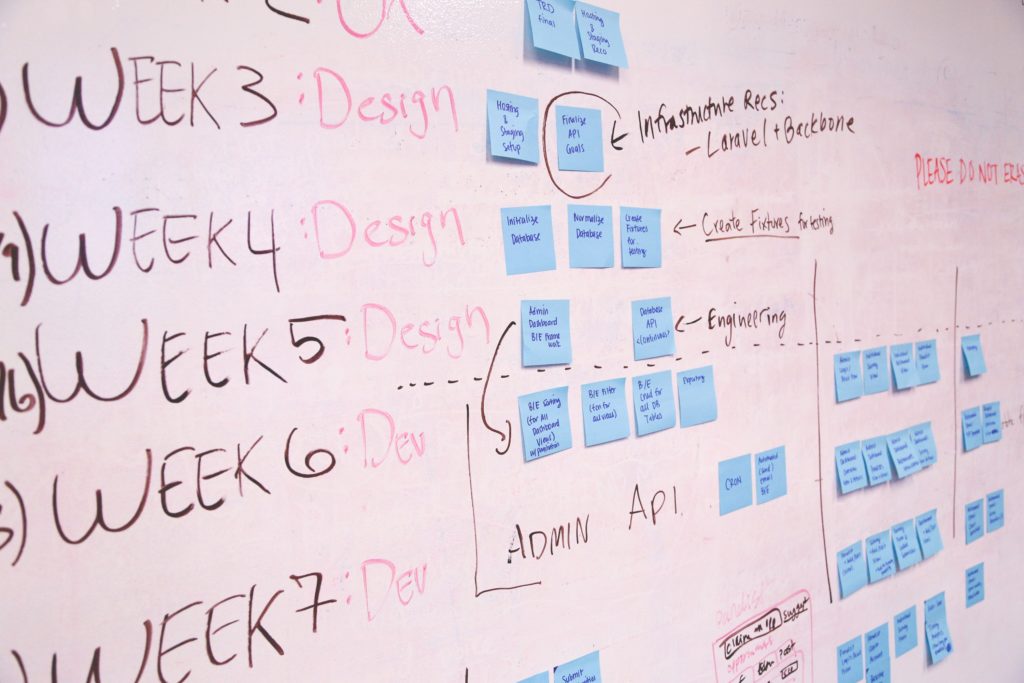Scapegoats – in search of the guilty one regarding project flaws
In retrospective, we are able to observe and change the process of how the team acts. During the meeting we may discuss the finished Sprint and determine, what else one could do in order for the next Sprint to be even more efficient and productive. Its aim is to aid teams in the continuous perfection of what they they do. At times, it happens, that in a given team, during a retrospective, a situation occurs during which someone says „it’s his fault”. Often, someone confirms that and enhances the message! So what happens with the persons that participate in such a meeting? Is looking for a scapegoat a really good solution? We will answer that in the following article.
Blaming someone else, automatically allows us to discard the responsibility for the existing situation. If „he” is to blame, then I am „clean”. Therefore, one may say, that by saying that „he is the one to blame”, we do a little bit to ease ourselves. However, why is it, that some people confirm the opinion? The answer is simple. They too do not want to take the responsibility… and that is not all. What happens next? As we have taken a safe position, it would be a shame to lose it. Therefore, we focus on securing the taken position, so no one could place that responsibility on us again. At times, the price is so high, that we are left with no more energy, nor time, and the retrospective yields no expected results.
What
if we didn’t look for the scapegoat?
Without looking for the guilty one, neither in ourselves nor in others, at the moment, when the situation requires change, we are able to:
- look into the future, while asking questions: what shall we do with it? What can we change?
- look at the past, wondering whether someone could have done something in order to not allow the situation to happen? If I could have done something for it to be better?
Both directions demand maturity and energy. Additionally, both build the value for the future, and make the situation better.
So why do we seek out the scapegoat?
To answer in the simplest manner possible: because everyone does it… because I will show weakness… because attack is the best defence… But the defence of what? Just the self… What does the „defence of self” attitude stand for, and what can we learn from it?
- There is no feeling of „us” as a team, there is no common goal, there is „Me” and „Him”, there’s „Us” and „Them”.
- The team members are afraid of failure, they have no space for error.
- Such attitude causes us to lose the opportunity to own development as individuals, and as a team.
What can be done, and what changes should be introduced to the team?
The most simple of solutions, seems to be an introduction of a postulate „from now on, we are not looking for scapegoats”. However, in my opinion, it is a too simple approach, as it does not lead us to the causes and deprives us of the opportunity to learn.
It is better to change the very subject by looking for behaviors, that are „guilty” of a given situation, instead of looking for „guilty” persons. In order to do that we may ask ourselves the following questions:
- What was the course of the situation?
- What symptoms were visible at first?
- Which moments were best to see/stop the development of the issue?
- Could I have done something differently? What could we have done differently as a team?
- What conclusions can be drawn for the future? What shall we change in our behavior in the future?
Being a well synchronized team, we support each other and there is no place for the „guilty” among us. All members should feel guilty according to the „all for one and one for all principle”, seeking out the best solutions to a given situation. Such approach will allow us to evade conflicts and, in the case of project issues, to develop a plan of action swiftly and efficiently. No one knows the existing situation as well as its participants, so we have the greatest chances to find the best solution.
Author:
Edyta Drojecka
Scrum Master in Eversoft




